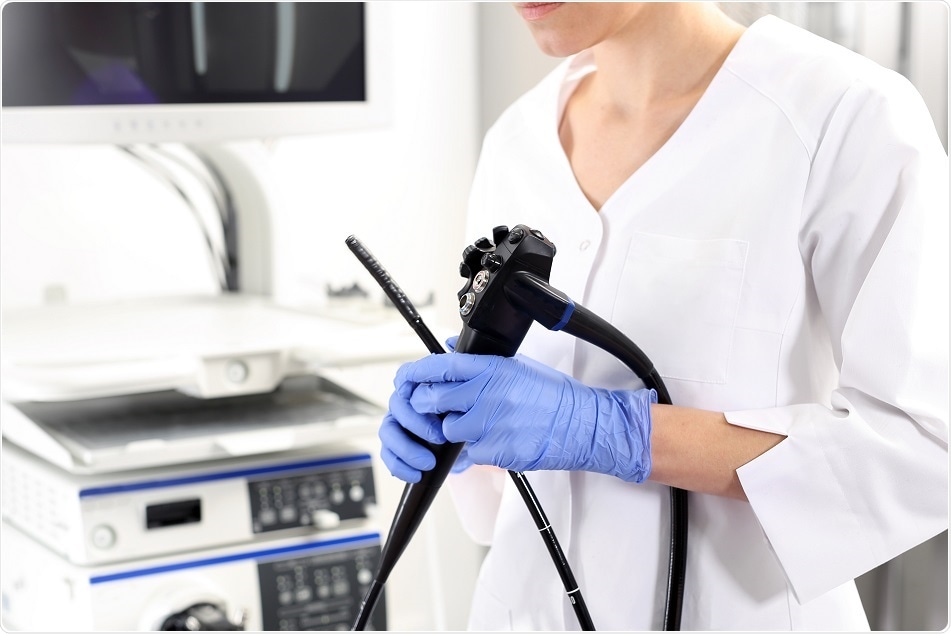Oct 30 2017
A novel artificial intelligence powered endoscopic system developed in Japan has been proved to automatically detect colorectal adenomas at the time of colonoscopy.

Credit: Robert Przybysz / Shutterstock.com
The findings of the first prospective trails of the AI-assisted endoscopic system were presented yesterday in Barcelona, Spain, at the 25th United European Gastroenterology (UEG) week.
In order to analyze nearly 300 features of a colorectal polyp, the computer-assisted diagnosis system makes use of an endocytoscopic image that provides a 500-fold magnified view of the polyp after staining with methylene blue or after the application of NBI (narrow-band imaging) mode.
Each polyp’s features are then compared with over 30,000 endocytoscopic images used in machine learning; this enables the system to forecast the pathology of lesions in less than one second.
The possibility of using this kind of a system in classifying colorectal polyps had been demonstrated through initial studies; however, no prospective trails had been reported yet.
The current prospective trail conducted at the Showa University, Japan, enrolled 250 men and women who were identified with colorectal polyps through endocytoscopy. In order to predict the pathology of every polyp, the AI-aided diagnosis system was used and each prediction was compared against the pathological report acquired from the final resected samples.
A total of 306 polyps were analyzed by the system simultaneously with 94% sensitivity, 86% accuracy and 79% specificity. In the identification of neoplastic changes, it also provided 79% positive and 93% negative predictive values.
Dr. Yuichi Mori, the lead author of the trail commented that independent of the skill of the endoscopists, the system is capable of providing instantaneous optical biopsy of the colorectal polyps at the time of colonoscopy.
“This allows the complete resection of adenomatous polyps and prevents unnecessary polypectomy of non-neoplastic polyps", Dr. Mori added.
According to him, the identification of exact site of the adenomas helps in the complete resection of the lesions and there by decreases the risk of colorectal cancer as well as deaths related with this cancer. The results are expected to be acceptable for clinical application and the research team aims at obtaining regulatory approval for this new method.
The team is presently working to develop an automatic polyp detection system.
Source: https://eurekalert.org/pub_releases/2017-10/sh-aii102317.php